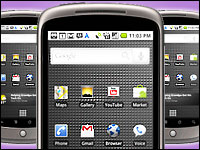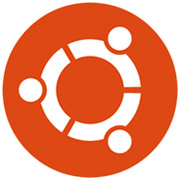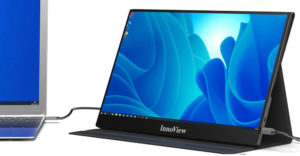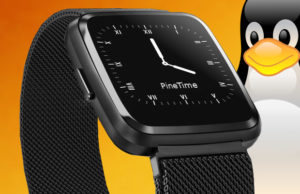
The Nexus One smartphone is now compatible with AT&T’s 3G network in the United States, Google announced Tuesday.
Though the unlocked device can be used with SIM cards from most GSM operators worldwide, frequency differences meant its 3G compatibility was previously limited to T-Mobile’s network in the U.S.
The Android-based device also now runs on Rogers Wireless’ 3G network in Canada.
Price Barrier
News of the expanded compatibility will certainly provide additional options for users of the well-hyped smartphone and help level out the playing field with Apple’s iPhone, which also runs on AT&T.
Whether it will be enough to buoy sales of the fledgling Nexus One, however, remains to be seen.
Though it was recently endorsed by none other than Linux creator Linus Torvalds just a month or so after its January launch, the unlocked Nexus One costs a hefty US$529 and can only be purchased online through Google’s web store.
The First 74 Days
Meanwhile, the devices are not selling as well as expected. Whereas Apple’s iPhone sold a million devices in its first 74 days — and the Motorola Droid sold some 1.05 million during a comparable time — Google has sold only 135,000 Nexus One units in the 70 or so days since its launch, analytics firm Flurry reported on Tuesday.
It may be that at least part of the reason for those disappointing figures is that “Google has struggled to get the support infrastructure in place for selling via the Internet,” Chris Ambrosio, executive director of wireless for Strategy Analytics, told LinuxInsider.
“The cellphone sales process is still very touchy-feely,” Ambrosio explained. “Users have many questions and features that they need support on that Google was not ready to support.”
Trademark Disappointment
Google reportedly received another blow this week when the U.S. Patent & Trademark Office denied its application for a trademark on the “Nexus One” name.
Potential confusion with Integra Telecom’s existing Nexus trademark dating back to 2008 was the reason given for that rejection, according to Why the Lucky Mobile’s Nexus One blog.
Google just filed its application for the “Nexus One” name this past December.
A Stress on Support
Taken together, the growing collection of less-than-encouraging news raises the question of whether Google’s Nexus One strategy will ultimately succeed.
The addition of AT&T users, in fact, could place further stresses on Google’s support capabilities, Ambrosio asserted.
AT&T users typically represent an older, higher-income demographic than T-Mobile users do, he noted, and they’re also less technically adept, on average.
There are also far more of them, Ambrosio pointed out.
As a result, the inclusion of AT&T users will likely “put Google under significant extra pressure,” he said. “I’d say the success of the Nexus One really depends on how quickly Google is getting its customer support functions up to speed.”
‘A Disappointment’
Of course, “every slugger swings and misses plenty,” telecom and wireless analyst Jeff Kagan told LinuxInsider. “They just hit home runs more often than others.”
The Nexus One is “not the blowout success we expected from Google,” Kagan added. “It is not an instant success like the Apple iPhone was. That is a disappointment.”
Yet the wireless business is not Google’s main business, he pointed out. “They have to get up to speed on how to blend their magical brand with this new industry.”
‘Their First Swing Missed’
Whether there’s still hope for the device is the big question, said Kagan.
“No one knows — if this were another company I would say chances are shrinking rapidly, but with Google and their strong brand name I would say they have much more time to make changes and get things right,” he pointed out.
It’s clear the wireless space is changing quickly, Kagan added.
“As of three years ago, the Apple iPhone changed the space and everyone is rushing to take advantage of the new opportunity,” he noted. “Google wants to take advantage of the same shift in wireless, and they want to add their own twist to it and change the industry even more to their own thinking.”
In short, “their first swing missed; the world is not rushing to the Google phone — at least, not yet,” Kagan concluded. “We’ll see what happens next. I think chances are good, but there are no guarantees. Google will not be successful at everything it tries.”





































































